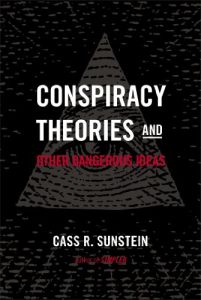Acesse a sua conta getAbstract para obter o resumo!

Acesse a sua conta getAbstract para obter o resumo!
Cass R. Sunstein
Conspiracy Theories and Other Dangerous Ideas
Simon & Schuster, 2014
Sobre o que é?
Legal scholar Cass R. Sunstein offers thoughtful, worthy essays on conspiracies, animal rights, government and climate.
Recommendation
Legal scholar and former Obama administration official Cass R. Sunstein’s essays provide insight into a variety of issues, including conspiracy theories, climate change, animal rights and a form of Obama’s “New Progressivism” that urges a less-ambitious role for government. Conservatives bash Sunstein, now a Harvard professor, as a big-government liberal, but he presents measured, nuanced views on public policy. He acknowledges that spending too much time with only like-minded people leads both liberals and conservatives into extremism, and explains why people savor conspiracy theories. Sunstein’s writing style is engaging, though his often-strong opinions sometimes dissipate or disappear, as in a rudderless chapter on climate change. getAbstract recommends his intelligent essays to students of government, policy makers, those interested in animal rights or cognitive science, and corporate leaders seeking insight into decision making.
Summary
About the Author
Law professor Cass R. Sunstein directs Harvard’s Program on Behavioral Economics and Public Policy. From 2009 to 2012, he ran the White House Office of Information and Regulatory Affairs.



































Comment on this summary